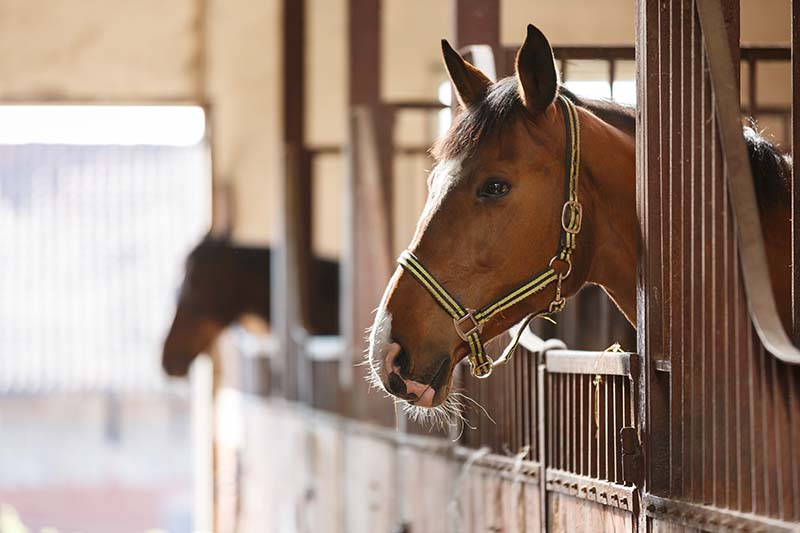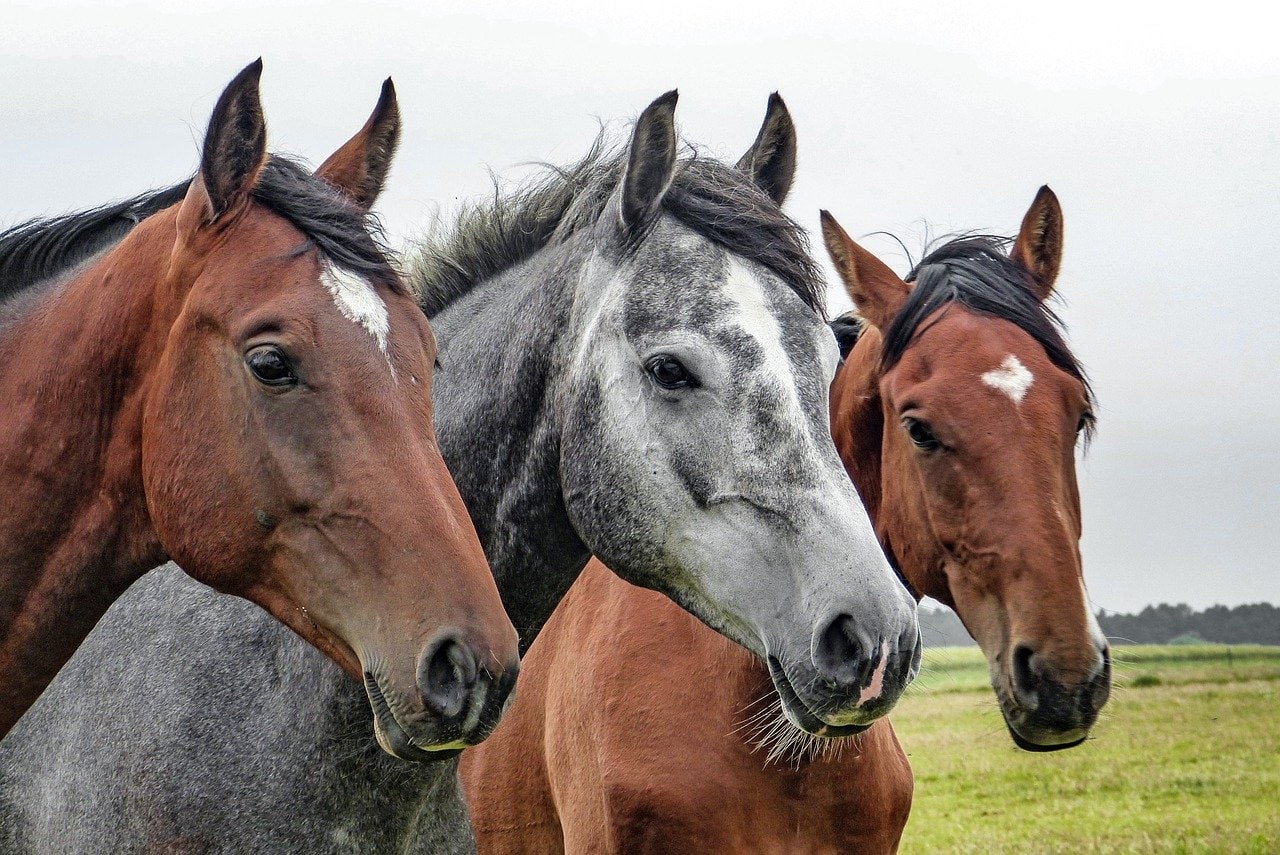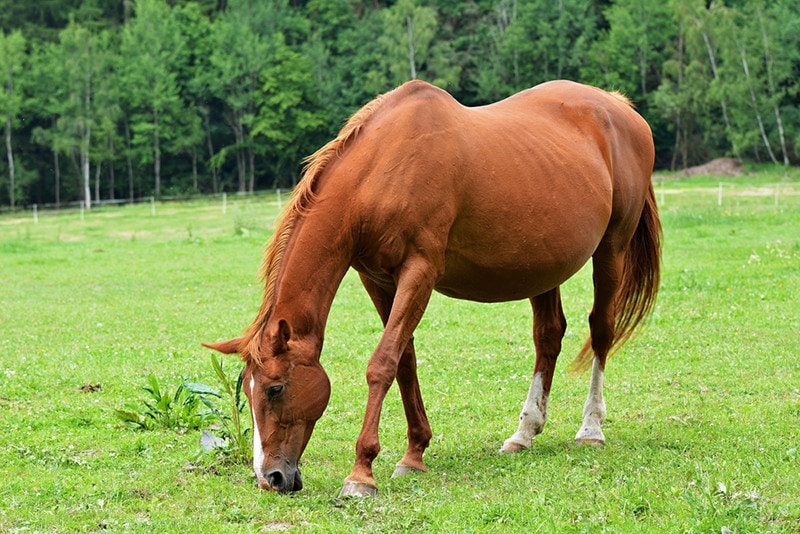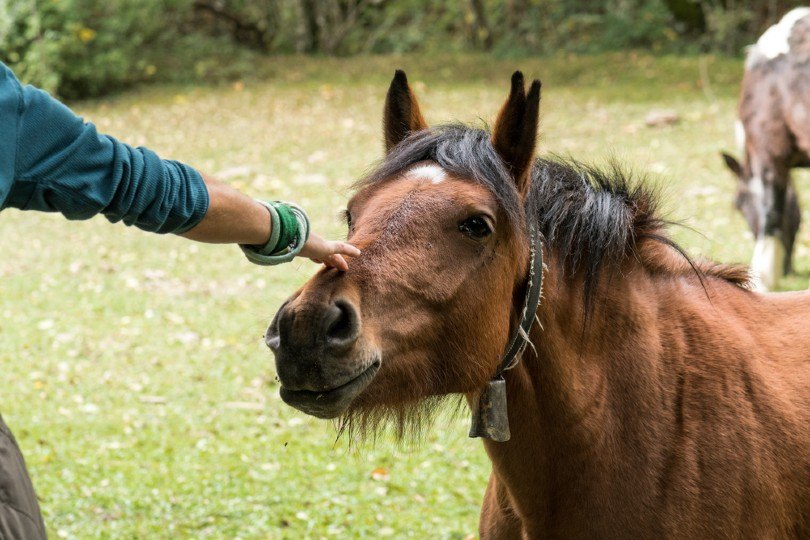
Sweet, nutritious, and delicious, strawberries are a staple in the healthy treat department for humans. But can your horse eat strawberries? Are strawberries safe for horses? The short and simple answer is yes, horses can eat strawberries! Not only will your horse love a handful of strawberries, but they can also be beneficial to your horse’s health.
That said, moderation is best when it comes to any fruit and your horse, and too many strawberries can have negative health impacts. In this article, we’ll take a look at how strawberries can both benefit and hinder your horse’s health and how to safely feed them to your horse. Let’s get started!
Potential Benefits of Feeding Strawberries to Horses
Strawberries are loaded with vitamins, including vitamins C, E, and K, and are a great source of folate and potassium, as well as dietary fiber. They are also packed with water and can be a good source of hydration for horses on hot days, and they are rich in antioxidants known as polyphenols, which are great for your horse’s immune function. These polyphenols also help with weight management, digestive issues, and cardiovascular problems.
Strawberries have a high amount of magnesium and potassium, which can help reduce blood pressure and aid in proper muscle function, including contraction and relaxation.

Things to Keep in Mind When Feeding Strawberries to Horses
Strawberries contain a large amount of sugar, and too much of it can cause problems for your horse. This high sugar content can be harmful to your horse’s teeth, and if your horse already has any dental issues, you should avoid feeding them any fruit at all. Strawberries are also fairly acidic, and too many can increase the risk of colic and abdominal pain.
Too many strawberries can also cause bloat and digestive issues for your horse, causing them discomfort and pain. More importantly, bloat will cause your horse to eat less of their regular meals, which can result in nutritional deficiencies and further digestive problems.
Lastly, if your horse has insulin resistance, you should speak to your vet first before giving any fruit, including strawberries, to your horse.
How Many Strawberries Are Safe?
Most experts agree that no more than 5 to 10 strawberries a week is a good rule of thumb for an average-sized horse. Be sure to wash them thoroughly and try to source varieties that are free from pesticides. They should also always be ripe, fresh, and free of mold — avoid frozen or expired strawberries.
Strawberries are to be given as an occasional treat only and cannot replace any part of your horse’s normal diet. Remember to throw away any strawberries that your horse doesn’t eat right away to avoid them eating a moldy strawberry later on — this fruit rots and molds quickly.

What Other Berries Can Horses Eat?

Conclusion
Strawberries are nutritious and tasty treats that are perfectly safe to give your horse as occasional snacks, and they can provide health benefits too. However, too many strawberries can also cause digestive issues, like bloat, so moderation is key. We recommend no more than 5 to 10 strawberries a week, just to be on the safe side. Also, organic varieties are preferable, and always make sure they are fresh, washed, and mold-free.
Related Read:








